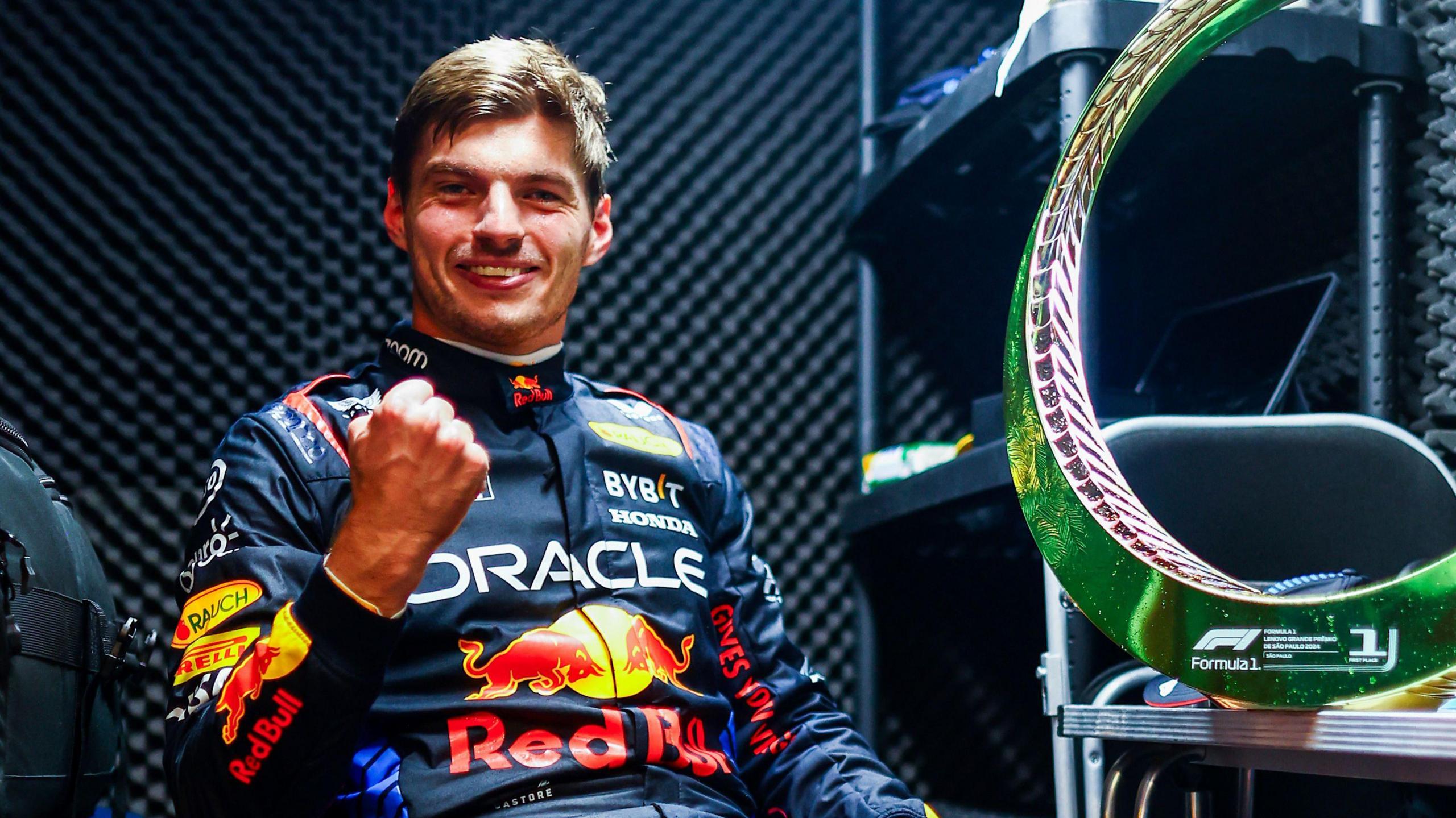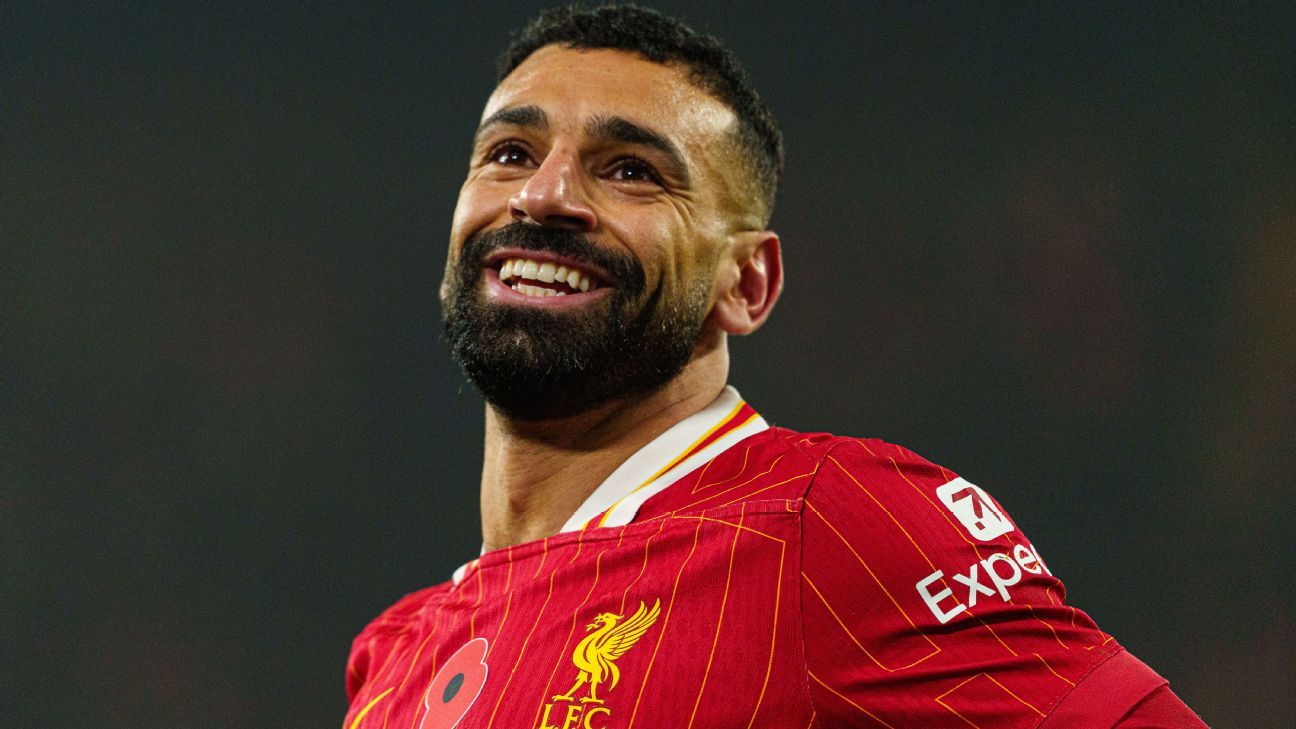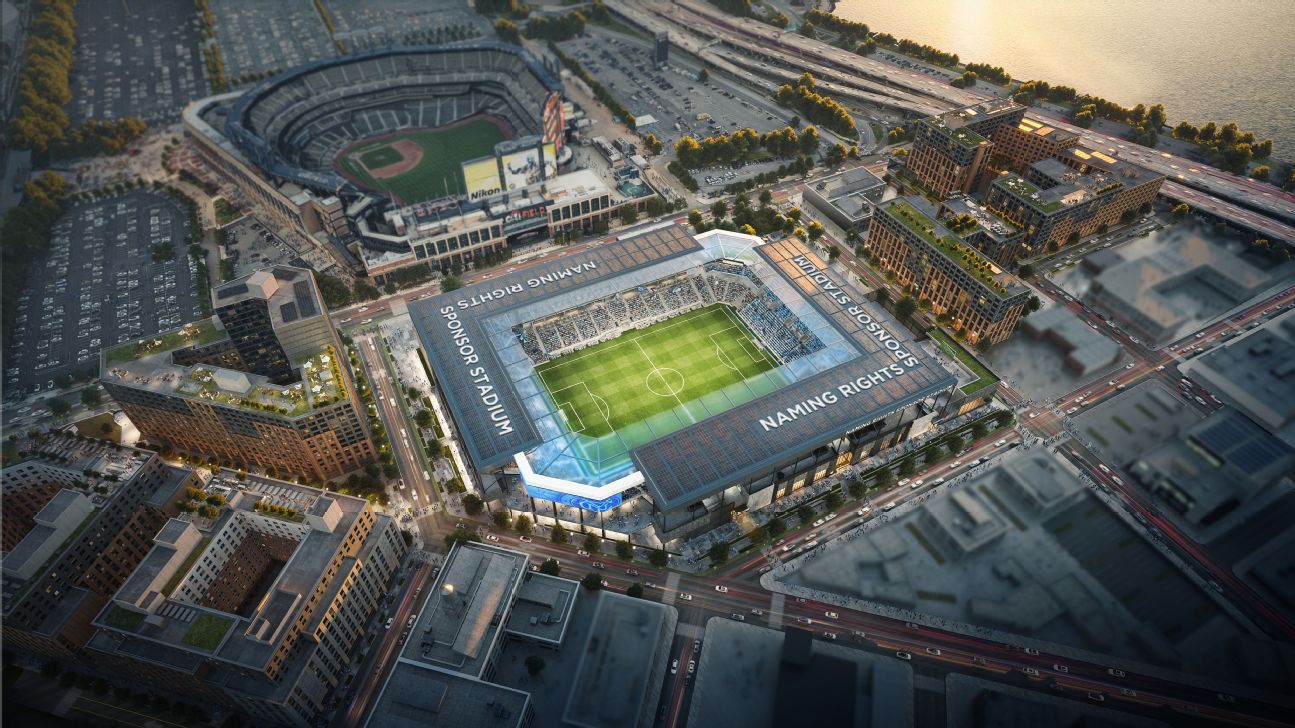 Image source, Getty Images
Image source, Getty Images
Max Verstappen celebrates after winning the Sao Paulo Grand Prix
F1 correspondent in Las Vegas
Max Verstappen is in Las Vegas, talking about the approach that has brought him to the cusp of a fourth world title.
"I know on track if you want to win, if you want to be a champion, you do need to be on the limit," the Red Bull driver says in an exclusive interview with BBC Sport.
And just like that, in a single sentence, Verstappen sums up his year - his entire approach to Formula 1 in fact.
Verstappen can seal that fourth championship under the lights late on Saturday night on the streets of Sin City - and will do if he finishes ahead of Lando Norris or does not lose more than two points to the McLaren driver.
"Of course the championship is in the back of my mind, naturally," he says. "But I will always try to get the best result out of it first and then see what’s possible."
This is the way he has handled the entire championship, throughout which Verstappen and Red Bull’s fortunes have swung widely.
Even before the season started, they were embroiled in drama. A female employee made sexual harassment allegations against team principal Christian Horner, who as a result has been at loggerheads with Verstappen’s father Jos all year. Horner denies the claims and two internal investigations have cleared him. Meanwhile, senior figures have left the team, including design legend Adrian Newey.
On track, Verstappen started the year in dominant fashion, before McLaren emerged as the faster car from the summer onwards while Red Bull’s form declined. Norris was eating away at the Dutchman’s advantage until Verstappen grabbed back the initiative in spectacular style with a stunning victory from 17th on the grid in a sodden Brazil earlier this month.
There has been a controversy, too, over Verstappen’s on-track racing tactics, caused by his defensive driving against Norris in Austin in October.
And yet through it all, Verstappen has been the model of consistency. While McLaren and Norris have made errors, Verstappen’s season has been almost perfect.
"I always demand a lot from myself," he says. "I always try to get the best possible result out of it. I hate making mistakes. I put that pressure on myself every weekend. If you want to win a championship, you cannot afford bad results."
Criticism of racing tactics
Image source, Reuters
Image caption,Max Verstappen and Lando Norris both left the track while fighting for position during the United States Grand Prix last month
Verstappen is in expansive and illuminating form throughout our conversation. And he’s especially enlightening on the topic that dominated two key races in Austin and Mexico last month.
Norris was the driver who ended up penalised in their battle for the lead in Texas but many of the other drivers felt Verstappen’s defensive tactics were beyond the pale.
It led to a talk in Mexico between the drivers and governing body the FIA. The upshot was an agreement that the rules be changed in a manner that seemed directed specifically at Verstappen, who for some time has employed a defensive tactic in which he holds the inside and forces a rival off track on the exit of the corner. A dive-bomb defence, some call it.
Usually reluctant to discuss tactics, now he opens up.
Did he feel like he was being singled out?
"Honestly, even if they would have done or did, first of all I don’t care because I drive to what I think is possible and what is allowed in the rules," Verstappen says. "And if the rules are written like that, I will use the rules.
"If that would have happened to me the other way around, I don't think I would have been the person to complain so hard because I would just think, 'OK, if that’s the rules, that's how we do it’ instead of screaming that we need to change the rules."
The rule with which he complied - and which many of his rivals want changed - says that if the driver on the inside is ahead at the apex of the corner, he does not have to leave space for the driver on the outside on the exit.
Verstappen says he does not like the rule either but also admits he would not ever want to give someone room on the outside of a corner.
"Well, me personally, I don’t race like that," he says and chuckles. "When I race with someone, he will not be able to overtake me around the outside. That’s how I grew up racing.
"Some drivers are just a bit more passive in racing, that’s just how they are. And I know that in F1 I can’t hang around the outside because they will push me off. It’s a racing instinct."
So how is someone expected to try to overtake him?
"It depends on the track layout," Verstappen says, echoing the views of other drivers that expansive asphalt run-off areas lead to this sort of racing because there is no penalty for going off track.
"Of course when the track is naturally the limit, no-one tries to go around the outside because they know that, so you then try to go for the cut-back or set yourself up in a different way."
Dispute between his father and Horner
Image source, Getty Images
Image caption,Jos Verstappen (left) and Red Bull team boss Christian Horner (centre) were pictured together during the Sao Paulo Grand Prix weekend but the relationship between the pair was not so warm earlier this season
In the end, the controversy over Verstappen’s tactics blew up only briefly, even if it has been a theme since he raced Lewis Hamilton for his first title in 2021.
The off-track situation at Red Bull had the potential to be more damaging, as Verstappen found himself in the middle of a dispute between his father Jos and Horner.
Jos Verstappen said he felt the team would fall apart if Horner stayed in his role.
It’s a measure of the strength of Max's character that he has managed to handle this with such equanimity, especially as the team’s competitive form was falling away at the same time.
"What has always been very important is that I had a good relationship with Christian and my dad," Verstappen says.
"My dad of course thinks about me and has the best interests for me - what I want to do and how I am in the team.
"He of course had his questions but at the same time I was always very busy dealing with the performance of the car and trying to make that better. But at the end of the day, he could see that now everyone is normal, everyone is dealing with it and focusing on the performance side of things.
"People do not need to be best friends, they don’t need to go on holiday together. But I feel like you can have a normal working relationship, which I feel is the case absolutely, and especially lately it is going much better.
"But I always said as well, when you have problems with each other, you’re not happy with something, you talk, you communicate, right? You speak to each other and that’s always way better than throwing something in the media.
"And I have said that to both of them and that’s why it was not for me about picking a side. It was just speaking a bit of common sense, I think, to both of them."
What was behind Red Bull's dip?
As to the departures of so many key people, Verstappen says: "I am not going to lie. I would have naturally preferred people to stay."
Asked whether he believes Newey’s departure was a factor in the team’s decline in competitiveness, he says: "I would like to believe not, because the car was already designed and the updates already planned."
Explaining Red Bull’s dip in competitiveness, he says: "We started really dominant but I also feel like some teams didn’t start as well as they should have compared to last year so we were a bit surprised about that.
"(We felt) it’s a bit weird how the others are not really making the step forward. So then I guess they got their stuff sorted out.
"I already said from the beginning of the year that I was not entirely happy with how the car was handling."
McLaren closed in, he says, despite Red Bull upgrading their car.
"And then you have to try and risk more, you have to get more out of the car yourself and then you feel it is quite limited.
"At one point in the season, we realised what we had been putting on the car, yes potentially might make the car quicker but it's very difficult to drive. And then you start to backtrack on a lot of things and you have to try and find when and where and how it happened."
As the car struggled, Verstappen’s consistency of excellence - he is, as Norris says, one of the greatest F1 drivers there has ever been - paid off. For five months, from Spain to Brazil, he did not win but he just kept on banging in the results, so Norris was never able to make big inroads into his lead.
"With my experience since '21," Verstappen says, "you just can’t afford bad results or massively missed opportunities that will at the end of the day really catch up with you in the championship."
Relaxed about the future
With a fourth title almost won and 62 wins already in the bag, Verstappen could potentially go on to break all F1 records.
"Yeah," he says, "but I don’t need to." Nor, he says, does he care.
He’s "very relaxed" about his future and repeats points he has made regularly in recent years - that he’s open-minded about his future, both in terms of where he might drive in F1 in coming years and how much longer he will stay.
Records, he says, are "not something I’m dreaming about. It’s not my desire. I just want to have a good time. I know when I jump in the car I will always do my best."
He adds: "It is not like when I started in F1... I had that target, seven titles, 100-plus wins. At the time, of course, Michael (Schumacher) was the record-holder. It’s not how I see life any more.
"Maybe when I was a bit younger, yeah, I wanted to drive F1 as long as I could. But now when you have already achieved so much, it is not about wanting to drive forever. I also want to enjoy life.
"I definitely don’t want to be racing in F1 until I’m 40 years old. You only live once and I don’t want to spend half of it racing cars."
The interview with Max Verstappen will be broadcast on Radio 5 Live from 21:00 GMT on Friday.

 By BBC (Sports) | Created at 2024-11-21 12:09:11 | Updated at 2024-11-21 16:33:32
4 hours ago
By BBC (Sports) | Created at 2024-11-21 12:09:11 | Updated at 2024-11-21 16:33:32
4 hours ago








